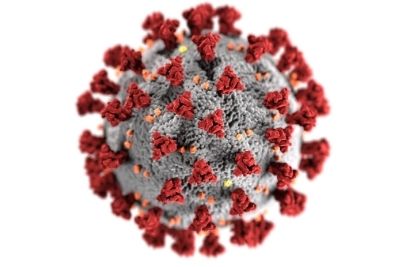News in 2021
- Eating disorder symptoms and self-harm linked to higher levels of depression and anxiety during COVID-19 pandemic 7 December 2021 Young adults who have previously experienced self-harm or eating disorders reported higher levels of depression and anxiety during the pandemic, even when restrictions had eased, according to new research.
- Baby teeth may one day help identify kids at risk for mental disorders later in life 10 November 2021 Like the rings of a tree, teeth contain growth lines that may reveal clues about childhood experiences. The thickness of growth marks in primary (or “baby”) teeth may help identify children at risk for depression and other mental health disorders later in life, according to a ground-breaking investigation led by researchers at Massachusetts General Hospital (MGH) using data from a world-renowned health study in Bristol and published in JAMA Network Open.
- Scientists discover how our brain uses nutritional state to regulate growth and age at puberty 8 November 2021 Researchers from the MRC Metabolic Diseases Unit and the MRC Epidemiology Unit have discovered how a receptor in the brain detects the nutritional state of the body and regulates the timing of puberty and rate of growth in children and increases in lean muscle mass.
- How does your jumping ability correlate to other areas of your health? 4 November 2021 The jumping mechanography – along with other physical measurements – assesses participants' general muscle strength, function, power and mobility.
- The new glycocalyx measure - what, why and how? 3 November 2021 A new measurement in the Children of the 90s @30 clinic analyses capillary function to see how the health of the glycocalyx relates to diseases including diabetes, kidney disease, cardiovascular disease, vascular dementia, pre-eclampsia and septic shock.
- New research finds school children may not be consuming enough long-chain omega-3 fats 24 September 2021 A new study by researchers at the University of Bristol has found that children may not be eating enough long-chain omega-3 fatty acids, which are found mainly in fish and seafood.
- Increased risk of depression for young people if their mothers experienced depression during or after pregnancy 24 September 2021 Children born to mothers who are depressed during and after pregnancy are more likely to develop depressive symptoms themselves by the age of 24, according to new research published today (24 September) led by the University of Bristol.
- Thousands to be invited to Bristol health study’s biggest ever clinic, starting this September 17 September 2021 Over 20,000 participants will be invited to Bristol health study Children of the 90s’ biggest ever clinic which has launched today (Friday 17 September).
- Fat matters more than muscle for heart health, research finds 9 September 2021 New research has found that changes in body fat impact early markers of heart health more than changes in body muscle, suggesting there are greater benefits to be expected from losing fat than from gaining muscle.
- Up to one in six people with COVID-19 report long COVID symptoms 28 June 2021 One in six (17%) middle-aged people who report being infected by SARS-CoV-2 also report long COVID symptoms, while this falls to one in 13 (7.8%) among younger adults who reported having Covid-19, according to a new study led by UCL and King’s College London researchers.
- New research finds GCSE results linked to child’s enjoyment of school aged six. 21 June 2021 A child's enjoyment of school at six years old is linked to their GCSE results aged 16, according to new research from the University of Bristol, published in the journal Science of Learning.
- Low levels of omega-3 associated with higher risk of psychosis, RCSI research 31 May 2021 New research has found that adolescents with higher levels of an omega-3 fatty acid in their blood were less likely to develop psychotic disorder in early adulthood, suggesting that it may have a potential preventative effect of reducing the risk of psychosis.
- Many of us could carry extra fat due to a change in a single gene 27 May 2021 New research has found that one in every 340 people might carry a mutation in a single gene that makes them more likely to have a greater weight from early childhood and, by 18 years of age, they could be up to 30 pounds heavier with the excess weight likely to be mostly fat.
- Smoking during pregnancy associated with child’s risk of having congenital heart disease 27 May 2021 Children born to mothers who smoked during pregnancy were at increased risk of having congenital heart disease, a new study published today [27 May] in the Journal of the American Heart Association has found.
- Study finds increased emotional difficulties in children during the pandemic 17 May 2021 The COVID-19 pandemic may be associated with continuing emotional and behavioural difficulties in children after the age of two, a new study out today [17 May] from researchers at the University of Bristol has found.
- Study shows online gambling soared during lockdown, especially among regular gamblers 17 May 2021 Regular gamblers were more than six times more likely to gamble online compared to before the COVID-19 pandemic, according to new research.
- Childhood abdominal pain may be linked to disordered eating in teenagers 13 May 2021 New research shows that people who suffer from recurrent abdominal pain in childhood may be more likely to have disordered eating as teenagers.
- Substance use and depression more closely linked for generation Z teens 4 May 2021 Substance use and antisocial behaviour are more likely to go hand-in-hand with poor mental health for generation Z teens compared to millennial adolescents growing up a decade earlier, finds a new UCL study.
- New research plans confirmed on Bristol health study’s 30th birthday 28 April 2021 Thirty years after it first started, the Children of the 90s health study – one of the largest, most detailed longitudinal birth cohorts in the world – announced today [28 April] that it will launch its biggest collection of health data yet on three generations of Bristol families in September.
- Bristol COVID-19 antibody testing study launched 24 March 2021 A study that will enable researchers to understand more about the second wave of COVID-19 and its long-term health effects has been launched today [24 March] by Children of the 90s, a health study based at the University of Bristol.
- Bristol researchers to collaborate on national study to understand long COVID 18 February 2021 What is long COVID and how can diagnosis be improved? Using data from electronic health records at a national scale alongside information from thousands of participants in the UK's population-based cohort studies, these and other questions will be tackled following today's [18 February] announcement of a nationwide long COVID study led by University College London (UCL). The study will include Bristol’s Children of the 90s health study, based at the University of Bristol.
- How COVID-19 is driving synergy between basic science and population-scale research 8 February 2021 This blog was written by Professor Nicolas Timpson, Principal Investigator of the Children of the 90s, and Professor John Wright, Chief Investigator of Born in Bradford (BiB)
- The case for cohorts – revealing the ‘before and after’ response to COVID-19 8 February 2021 Throughout 2020, we witnessed an unquenched thirst for information on the COVID-19 pandemic and - in most quarters - a remarkable willingness to change our normal behaviour to help protect the NHS and save lives.
- Consuming omega-3 fatty acids could prevent asthma 28 January 2021 New research suggests that a higher dietary intake of long chain omega-3 fatty acids in childhood may reduce the risk of developing subsequent asthma, but only in children carrying a common gene variant.
- Study finds national data may be underestimating illicit drug use in young people 18 January 2021 A study published today [18 January] in the publication Addiction suggests that the UK government’s current national population-based data may be understating illicit drug usage among young people by as much as 20 per cent.
- New research shows the importance of consuming enough vitamin B12 in pregnancy 11 January 2021 A new study published in Nutrition Research has found that children born to a mother with low intake of Vitamin B12 during pregnancy were at increased risk of adverse development specific to certain speech and mathematical abilities.







.jpg)













